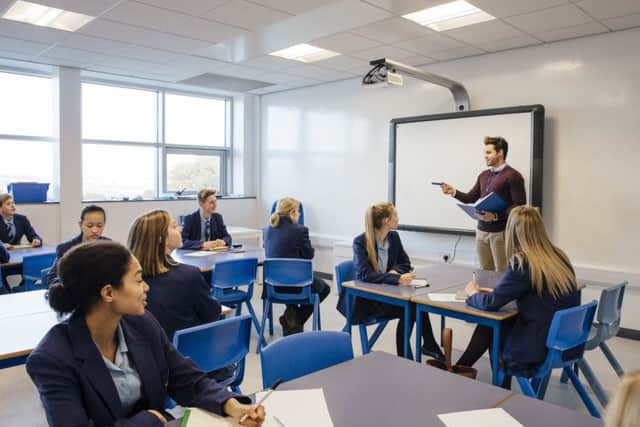Scottish schools struggle to fill nearly 3000 teaching posts
and live on Freeview channel 276
Figures from Scotland’s councils’ schools have struggled to recruit for both primary and secondary teachers.
The Scottish Government said it had taken “decisive” action but the Educational Institute of Scotland (EIS), said the figures highlighted the “crisis” of heavy workloads and declining pay.


Advertisement
Hide AdAdvertisement
Hide AdThe latest statistics were obtained by the Scottish Conservatives under Freedom of Information, and the party’s shadow education secretary Liz Smith said: “This is another alarming statistic, which highlights the severe consequences of the SNP’s chaotic approach to workforce planning.
“Councils are clearly finding it very difficult in some circumstances to recruit teachers to key posts, which is why the level of re-advertisement is rising and why there is a growing burden on existing teachers.”
Last week 98 per cent of teachers taking part in a ballot rejected the government’s latest pay deal, which offers a headline three per cent rise, with bigger increases for staff on lower grades.
The Scottish Secondary Teachers’ Association (SSTA) has said the first national teacher strike over pay in Scotland since the 1980s is now “very likely” unless there is an improved offer. An EIS spokeswoman said: “Difficulty filling vacant posts is just one example of the effects of the recruitment and retention crisis currently facing Scottish education.
Advertisement
Hide AdAdvertisement
Hide Ad“A growing number of experienced teachers are choosing to leave the profession early and not enough new teachers are coming into the system. In order to make teaching an attractive career option, issues of severe workload and declining pay must be addressed.”
Edinburgh City Council drafted in undergraduates last year when it was unable to fill teaching posts at Trinity Academy, receiving fewer than five applications for two vacancies.
A Scottish Government spokesman said: “We continue to provide funding of £88 million per year to support councils to maintain teacher numbers.
“This resulted in 543 more teachers in 2017 than the previous year – the second consecutive year teacher numbers increased.”
